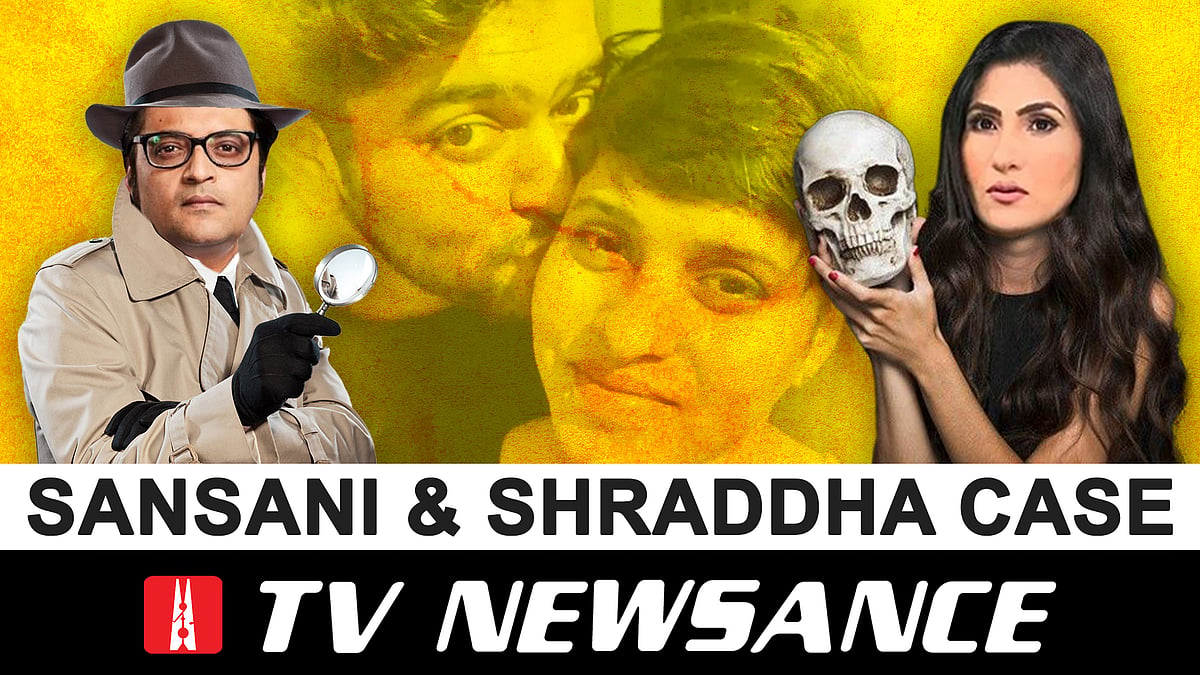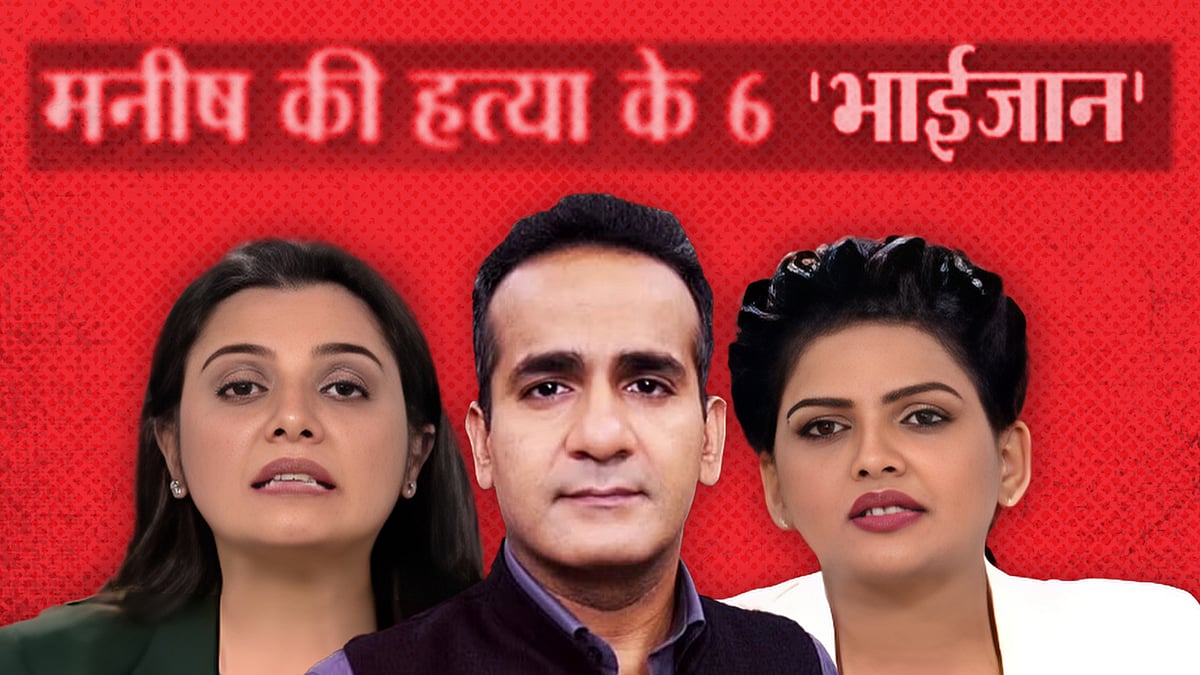‘Love jihad’, ‘business jihad’, and the Abduls adored and hated by Hindu supremacists
A Sudarshan News show asked if one has to pay with one’s life for a friendship with or love for Abduls. Similar questions have been heard on the mainstream.
Newslaundry had earlier reported how the media used the Shraddha Walkar case to refer to the lurking spectre of “love jihad”, which, while demonising Muslim men, casts Hindu women as weak-willed and feeble-minded and lacking agency and the ability to make their own choices.
However, the insinuation that Shraddha dug her own grave by using a dating app or making choices independent of her family, or choosing a partner from outside her religion overlooks the National Crime Records Bureau data indicating that Indian women face violence at a massive scale, irrespective of the religious identity of their partners.
But why did the anchor feel the need to rely on the name Abdul, even though he had clarified on the show who these Abduls were. “Do you feel that befriending a Muslim means giving your life?”
When an Abdul was adored by the Hindu right, almost
But in the deployment of this word in such a phrase and context, one might ask if Hindu supremacists may have scored a self-goal. For even though such a narrative seeks to disparage Hindus who are too naive to see the “truth” about all Abduls, it was the Hindu right that held another Abdul very dear. Former president Dr APJ Abdul Kalam, the scientist and statesman, was eulogised by Hindu supremacists for his unapologetic Tamil identity, and his love for Hindu texts, the veena, and vegetarianism. While such traits were not unique to Kalam, he is still seen as the un-Islamic model Indian Muslim.
Scepticism has gleamed.
For even though the prime minister inaugurated a memorial in the former president’s memory in Tamil Nadu two years after his death, the then union culture minister told India Today that APJ Abdul Kalam was a great nationalist and humanist “despite being a Muslim”. The anchor didn’t consider it important enough to question the minister on what his statement implied for the cultures of Indian Muslims and the faith professed by Kalam. The minister was later allotted the same official bungalow that Kalam lived in for eight years.
Yati Narsinghanand Saraswati, the firebrand Hindutva priest who is out on bail in the Dharam Sansad hate speech case, has been more scathing, calling the former president “jihadi number one” – that’s besides frequent ostensible violations of his bail conditions, without consequence. Only for his name.


That brings us back to Abdul. Who is he, and why is this name deployed in Hindutva theories?
The word Abdul, literally translating to “servant of the”, usually is used along with a second component in Arabic to denote meaning to a name, such as “Abdul Rehman”, or “servant of the gracious”.
But in the Hindutva ecosystem, it’s usually added to the word “puncturewallah” to denote the illiterate uncouth Muslim, whose rightful place is on the street, fixing punctures for pennies. Abdul Puncturewallah, however, isn’t just an insult to the Indian Muslim, but also a casteist affront to the landless labourer and the dignity of labour. This appears to be part of a consistent lexical effort to propagate the power of Hindutva, which is unique among supremacist movements but involves similar politics of language and othering.
However, the only plausible reason behind the selection of the word Abdul appears to be the perception that it’s a common name for Muslim men, just like Rahul or John for Hindus or Christians, respectively.
Consider a reference to this word by Samajwadi Party leader Azam Khan’s confidant Fasahat Ali Khan Shanu, who used it after joining the BJP. In SP, Shanu said, “Abdul’s role” was just to lay the carpet for the leadership. “He didn’t get anything in return. During the BJP’s rule, we have realised that all the government schemes are reaching the common man, irrespective of religion and caste.”
As the Shraddha Walkar case continues to make headlines, the politics around it has refused to die down, with Assam chief minister and BJP leader Himanta Biswa Sarma appealing to voters for a third consecutive term for PM Narendra Modi in order to rein in “love jihad”. “If the country doesn't have a powerful leader, one who considers the nation their mother, such Aftab will be born in every city, and we would not be able to protect our society.”
Meanwhile, during the “vyaapaar jihad” show on Sudarshan News, mentioned earlier in the report, the channel claimed that “sympathisers of jihadis” such as Rajasthan chief minister and Congress leader Ashok Gehlot have now started issuing remarks on the Shraddha case with an eye on polls. Gehlot had earlier told the media that the Shraddha Walkar case was being used to target a particular community and there was nothing new about interfaith relationships which have long existed in the country.
 TV Newsance 193: Mehrauli murder case and its sansani reporting
TV Newsance 193: Mehrauli murder case and its sansani reporting Bhaijaan the suspect: TV news is turning everyday Muslim conversation into a tool of bigotry
Bhaijaan the suspect: TV news is turning everyday Muslim conversation into a tool of bigotry
